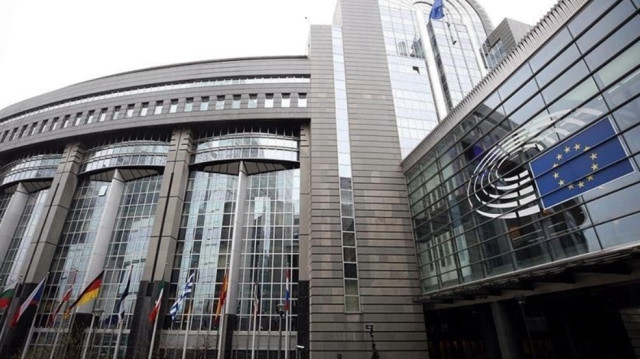
Bloc to weigh trade curbs, arms embargo and individual sanctions ahead of July 15 foreign ministers' meeting
The European Union is expected to present a series of possible punitive measures against Israel next week in response to its actions in Gaza, though divisions among member states make their adoption unlikely, officials said.
An internal EU review of Israel's trade agreement with the bloc, obtained by Euractiv last month, found “indications of a breach” of the human rights commitments outlined in the deal.
In response, the European External Action Service (EEAS), the EU's diplomatic arm, is preparing to present a formal options paper to ambassadors next Wednesday, according to officials familiar with the discussions.
The paper outlines five potential measures, including a full or partial suspension of the EU-Israel association agreement, targeted sanctions on Israeli government ministers, military personnel, or extremist settlers, trade restrictions, an arms embargo, and the suspension of scientific cooperation.
While many of these options have been discussed informally in recent months, this marks the first time they will be formally presented in writing.
EU foreign ministers will discuss the paper at their meeting in Brussels on July 15, the final gathering before the summer break. That date also serves as an informal deadline for Israel to demonstrate improvements in Gaza's humanitarian situation.
“The first goal is to change behavior on the ground (...). If the situation does not improve, then we can discuss further measures,” EU foreign policy chief Kaja Kallas said last month.
A technical EU delegation led by Middle East envoy Christophe Bigot visited Israel recently for talks, though EU officials expressed skepticism about achieving concrete results.
Israel has strongly criticized the EU's review, calling it “outrageous” and “full of methodological shortcomings.”
While Brussels says the process is intended to help alleviate civilian suffering in Gaza, deep divisions among member states persist.
Suspending the EU-Israel association agreement would require unanimous approval from all 27 member states — an outcome seen as unlikely due to opposition from Germany, Czechia, and Hungary. The European Commission, which oversees trade policy, is also believed to oppose broad economic measures.
An arms embargo is similarly viewed as improbable, particularly given Germany's role as Israel's largest European arms supplier.
However, targeted sanctions on individuals are considered the most politically feasible option. EU diplomats note that countries including the UK, Australia, Canada, New Zealand, and Norway have already imposed similar measures.







